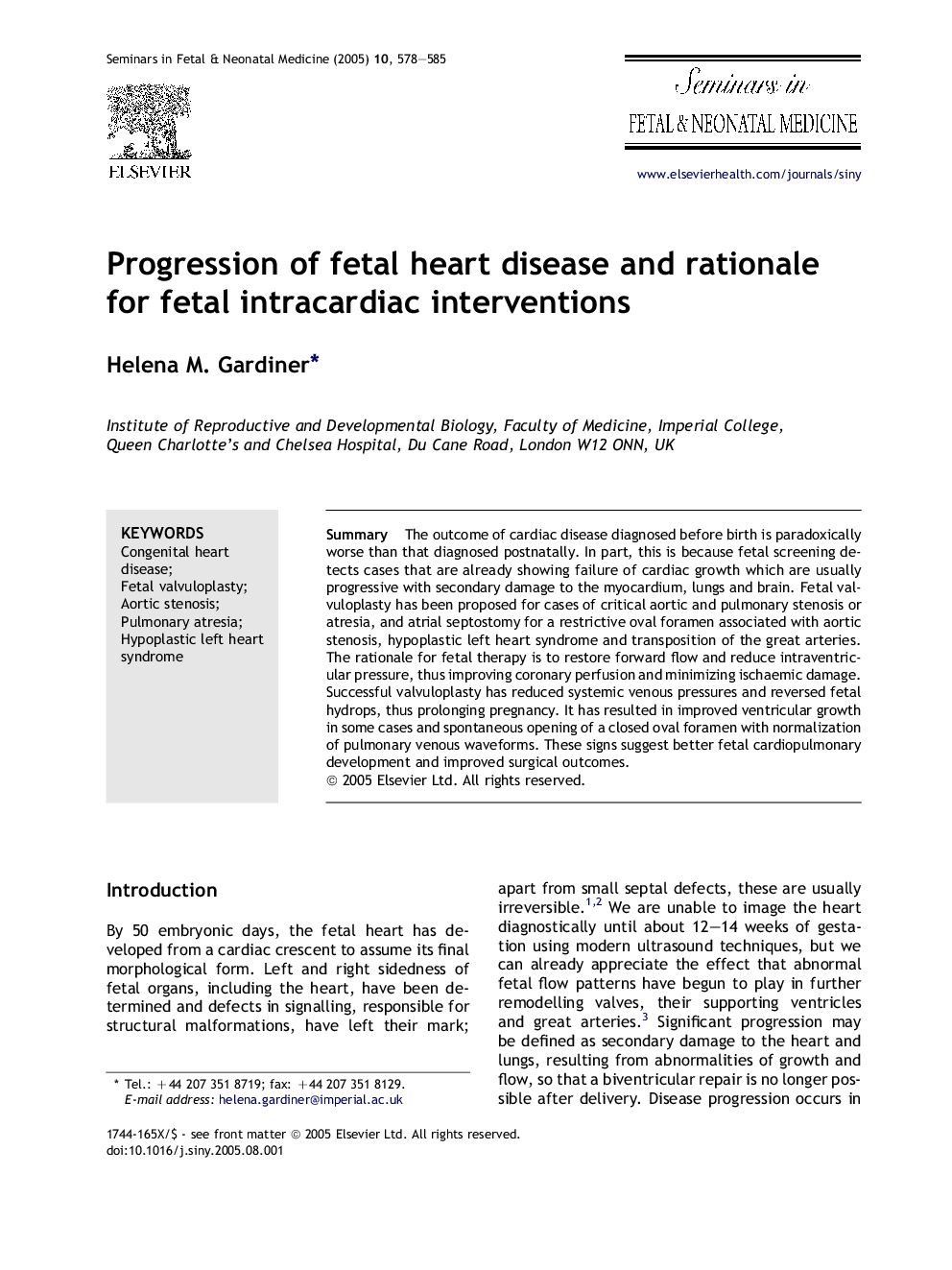| Article ID | Journal | Published Year | Pages | File Type |
|---|---|---|---|---|
| 9335997 | Seminars in Fetal and Neonatal Medicine | 2005 | 8 Pages |
Abstract
The outcome of cardiac disease diagnosed before birth is paradoxically worse than that diagnosed postnatally. In part, this is because fetal screening detects cases that are already showing failure of cardiac growth which are usually progressive with secondary damage to the myocardium, lungs and brain. Fetal valvuloplasty has been proposed for cases of critical aortic and pulmonary stenosis or atresia, and atrial septostomy for a restrictive oval foramen associated with aortic stenosis, hypoplastic left heart syndrome and transposition of the great arteries. The rationale for fetal therapy is to restore forward flow and reduce intraventricular pressure, thus improving coronary perfusion and minimizing ischaemic damage. Successful valvuloplasty has reduced systemic venous pressures and reversed fetal hydrops, thus prolonging pregnancy. It has resulted in improved ventricular growth in some cases and spontaneous opening of a closed oval foramen with normalization of pulmonary venous waveforms. These signs suggest better fetal cardiopulmonary development and improved surgical outcomes.
Related Topics
Health Sciences
Medicine and Dentistry
Obstetrics, Gynecology and Women's Health
Authors
Helena M. Gardiner,
